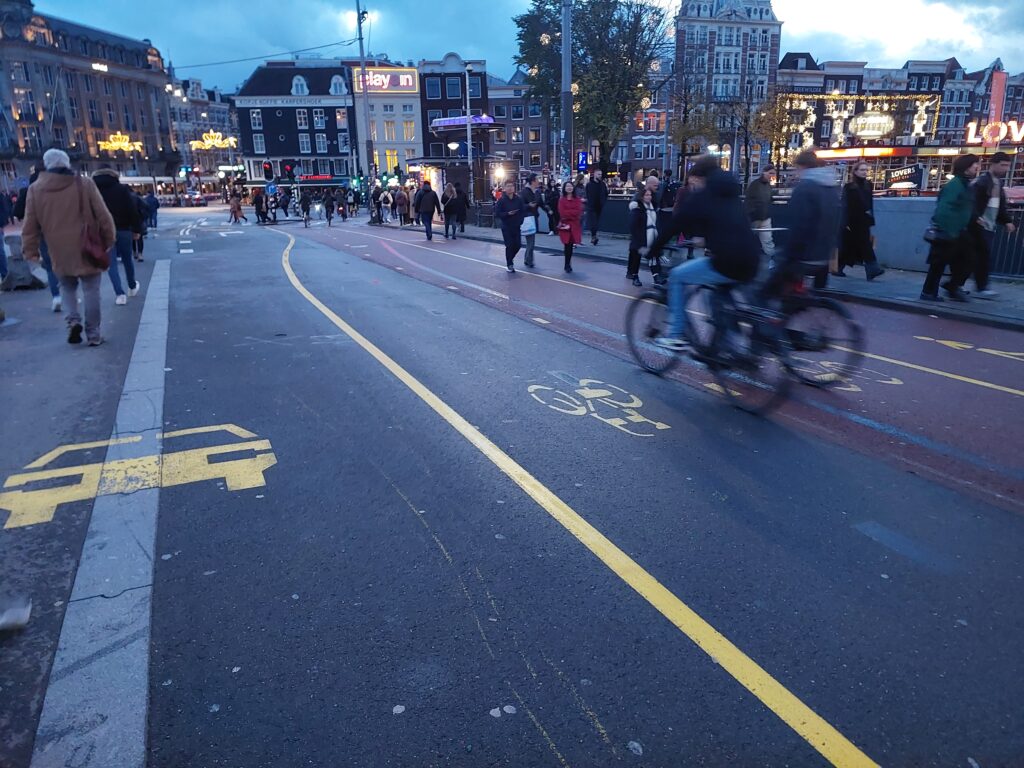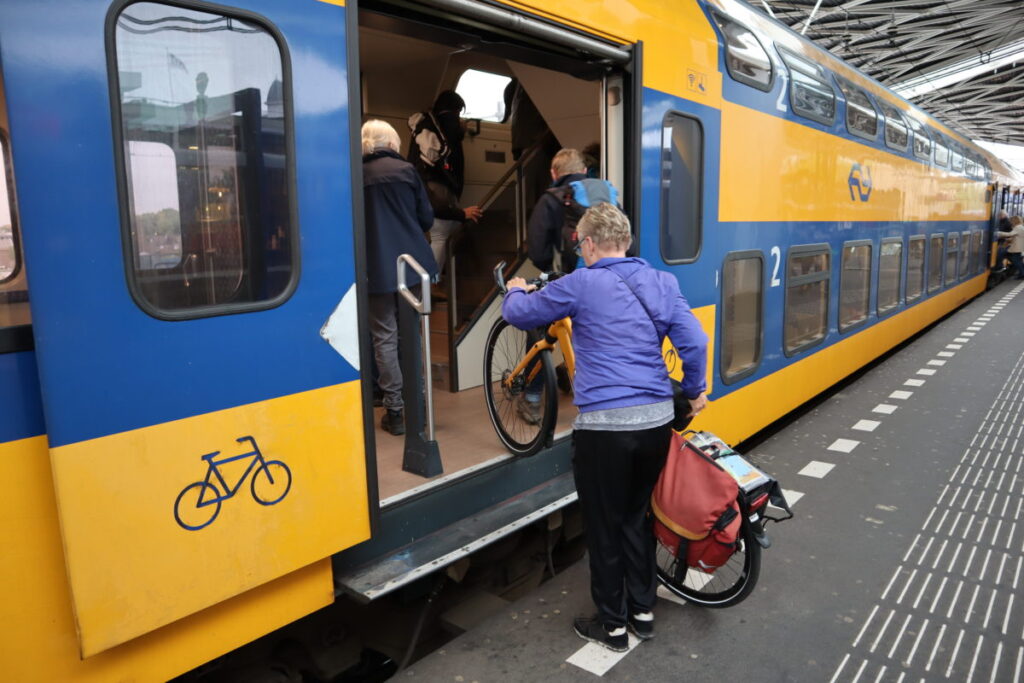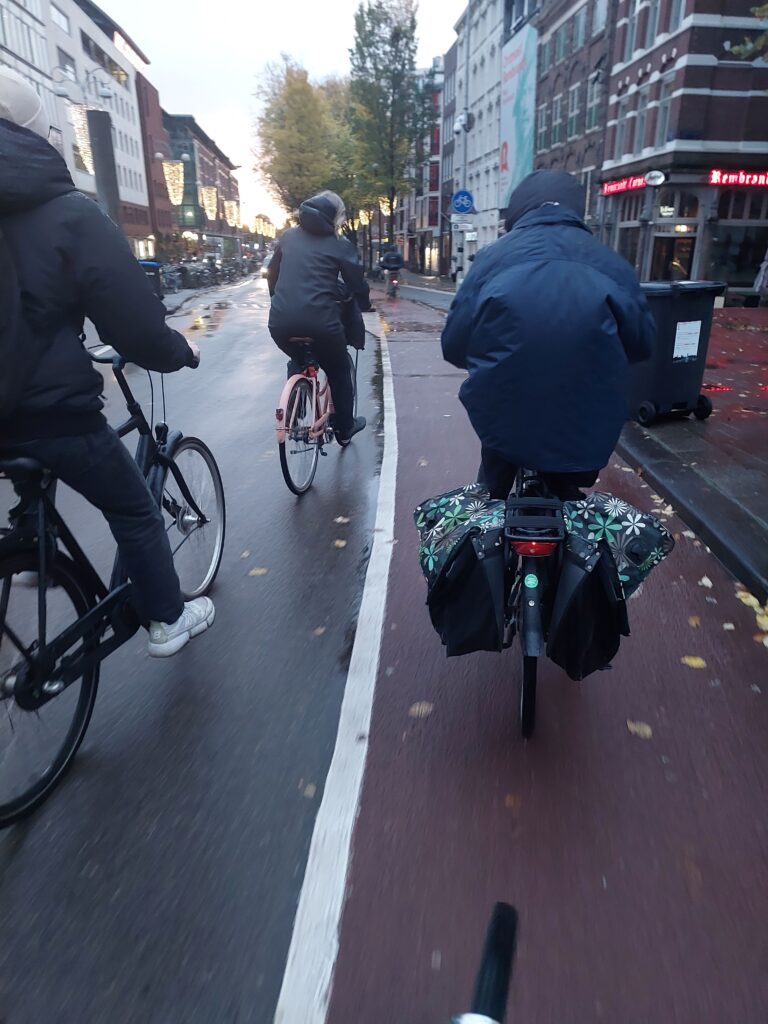Interview with Romee Nicolai | LinkedIn
Conducted by Jessica Rosenqvist | LinkedIn
I am Jessica Rosenqvist and had the opportunity to interview Romee Nicolai, the project manager for the bike kitchen at the University of Amsterdam. The Urban Cycling Institute and Kruitbosch are the co-founders of this Bike Kitchen.
It was great to talk to Romee, who is also a full-time master’s student at the university, while I was visiting the Urban Cycling Institute. She is a force to be reckoned with and it was very inspiring to hear her journey in running the Bike Kitchen. The Bike Kitchen is a DIY bicycle repair community workshop based on a non-profit basis where cyclists can fix their bikes, ask supervisors, and learn from others.
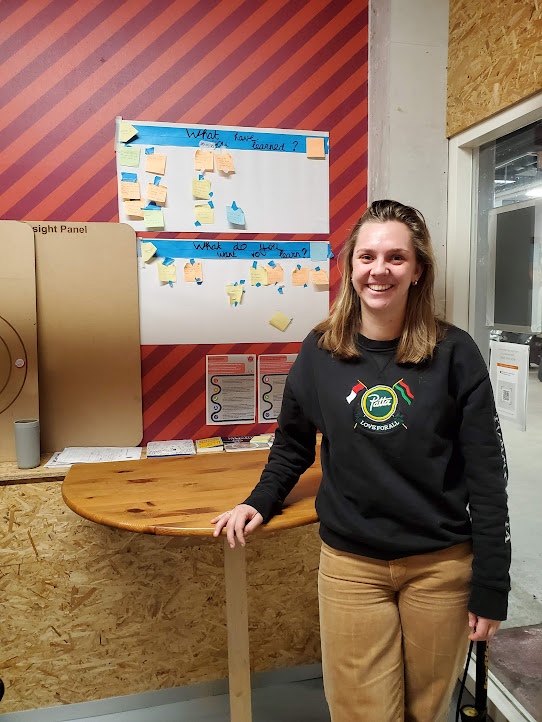
What prompted you to create the bike kitchen?
When I asked Romee about how she got involved with creating the bike kitchen, she told me that there was a necessary need for creating a meeting place at the University of Amsterdam (UvA) campus. She had already been in touch with Marco the Brömmelstoet, the cycling professor at UvA and a supervisor who she did a project for that was related to co-creation of spaces. Being a big cycle fan was a plus. Her supervisor from the project saw that she was very enthusiastic about making spaces for people to meet and exchange ideas and the space where the bike kitchen is now located was not used. Half a year later the supervisor talked to her again, telling her that she had talked with the cycle professor about starting a bike kitchen, and that they thought she would be the right person to run it. After some consideration, she quit her former job as a cycle courier and decided to take on the role as the project manager for the bike kitchen as she felt that it could be an opportunity to learn.
The bike kitchen began last year with a pop-up workshop organised every month. What Romee noticed during these workshops was that people would go there to fix their bikes but the conversation topics revolved around other things such as studies. For her that was one of her aims, where the bike is just a symbol and the space is more about meeting people and learning from others. The bike is just a means to reach that goal of connecting with people. An important element that is in the bike kitchen is a board where people who come and fix their bikes can put a post-it note on what they have learnt during that session. It’s a good board to have to help with self-reflection where the focus is not just repairing the bike but thinking about what one has achieved during it.
What was the most challenging aspect of developing this bike kitchen?
The challenging part of developing the bike kitchen for Romee was that it began as a project, which then became bigger than that. She said that a project has a definite ending whilst the bike kitchen does not. She said that it became more of a startup initiative within UvA with not a lot of support from the university so she had to do it all by herself. For her the most challenging part was the lack of a supervisor to help guide her through the process and having to learn the ropes by herself from the financial aspect to where to wire the electricity in the new space during the renovation. She said that she felt much more confident now than she did a year ago thanks to her experiences.
How successful has the bike kitchen been since it opened?
Since the bike kitchen officially opened in October, 2023 they have been fully booked every day every week, so there has been a huge demand for it. They have had over 600 visitors and have served more than 2% of the entire campus. Romee has been interviewed by the local newspaper, the regional radio station, the national news and been on the television twice. She was also recently interviewed by a German news channel, so the bike kitchen has gotten international attention.
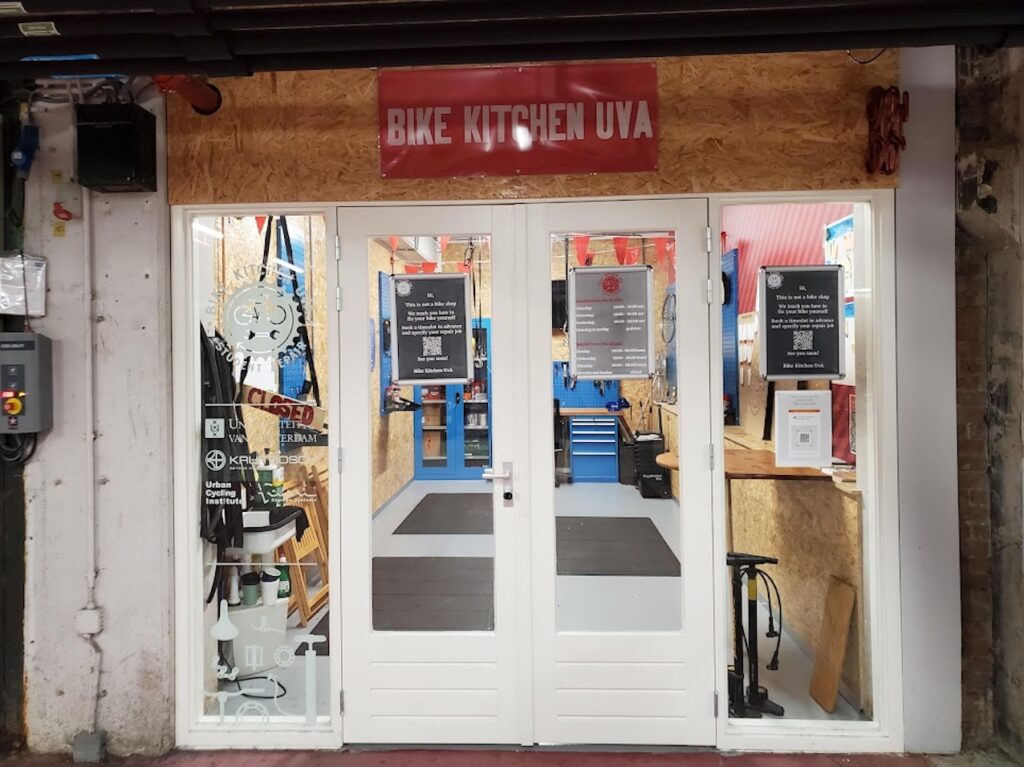
I’m assuming that you’ve spoken to some of the women who have come to the bike kitchen. What views do they have on being able to tinker with their own bikes?
When asked about the women who come to fix their bikes, Romee said that it’s not uncommon for women to come to the bike kitchen and say that they don’t know what happened to the bike and that they were almost apologetic for going there. What she does then is that she reassures them that it’s ok and explains to them how to fix their problem and she notices a more relaxed vibe seep in as well as confidence when they know how to fix the problem themselves. Something that really motivates her is when she sees those same people who came in with lack of confidence, walking out feeling that what they did was not so difficult and have a change of mindset.
Do you feel that maybe having a workshop that teaches women how to fix their bikes can help empower women?
When asked about whether having a workshop focusing on teaching women to fix their bikes, and whether that can help empower women, Romee agreed that it would be a helpful workshop to hold. She also stated that having her be a woman herself is helpful as she thinks that women in general feel more comfortable making mistakes when men are not present, where they feel that they won’t be judged. She also thinks that having a workshop with only women can be empowering because it can create a sense of belonging. So she is definitely willing to organise something like that.
How do you see the bike kitchen developing?
Romee’s goal is to have a bike kitchen at every university campus in the Netherlands in the next five years. She has already been to the ministry to pitch to all universities to say that it is not difficult to start a bike kitchen. All you need is 25 sq metres, three mechanics and structure. Surprisingly, as I found out, bike kitchens are not that common in the Netherlands. The other bike kitchen at a university is a small one in Delft and in Wageningen. But in other countries such as France, Germany, England and the US bike kitchens are pretty well known. She also thinks that that, combined with the fact that there are more than 20,000 bikes on campus daily, was the reason for the cycle professor to get the idea to create a bike kitchen at UvA.
Romee’s dream is to spread the concept of bike kitchens and for her in particular to make the connection between research, societal impact and practical knowledge. Another point she mentioned was to raise awareness and strengthen the relationship between people and products. In Amsterdam, the municipality throws away more than 200,000 abandoned bikes. She hopes that by teaching people how to fix their bikes, they will be less willing to throw them away and therefore create less waste. I think that she is well on her way to achieving that and UvA becoming a more sustainable environment thanks to the bike kitchen.
You can also read an essay about the Bike Kitchen on our website: From DIY to Strengthening the Human Infrastructure or a recent interview with Romee about her new role as Bicycle Mayor of Amsterdam: Romee Nicolai is inaugurated as the new Bicycle Mayor of Amsterdam

